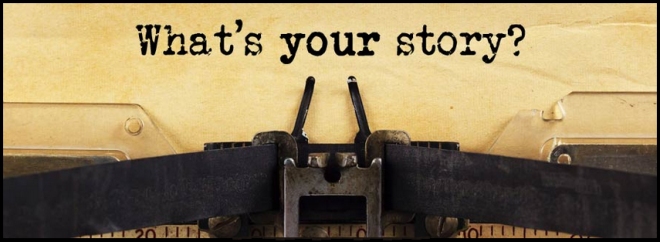What’s your Money Story? We all have one. No matter how much of the stuff we have, or how much we love or hate it, we each have a money story and it begins in childhood and continues into our teens and adulthood. This blog is an introduction to My Money Story by Revd. Steve Pierce, and edited and adapted by Rachael Phillips
Our early money experiences shape our adult attitudes and actions around money. In turn they shape the attitudes of those around us. When we begin to piece these memories and experiences together and explore what they mean for us, we are beginning to learn our money stories.
Start at the beginning
When we start thinking of our early money experiences, some memories are precious while some are sad and recall harsh times. Some money memories are almost buried by time and it is only as we consciously think back that we begin to remember.
We might remember parents arguing or worrying about money, or money being a taboo subject at home. We can recall earning pocket money or how it felt to spend our first week’s wages. What about money milestones? Do we remember the excitement of buying our first car or saving for a deposit for our first flat? Of course there can also be memories of redundancy; a debt crisis; of signing on. All these memories are like the pieces of an unfinished jigsaw.
Each has a place and a meaning. When we begin to piece them together we learn to tell our money story and unlock the meaning of the memories. We explore not only what happened, but also how we felt at the time and what impact it had on us. We are always asking, ‘How does this memory and the feelings I associate with it still shape my attitudes to money today?’
Understanding ourselves
Exploring these money memories matters because whether we are aware of it or not these memories shape how we think, feel and act around money as adults. This is one lady’s story:
Money was never talked about at home. If I asked what something cost Mum just said, ‘That’s for me to know and you to wonder’! I couldn’t even ask why my younger brother got more pocket money than me! I only started to learn about money and the value of things when I started earning. Even then my Mum’s attitudes influenced me strongly. I bought a lovely coat with my first pay packet but I remember Mum thinking it was more fashionable than functional. The funny thing is that I still feel that tension when I buy nice things now! It was only later when I became a Christian that I learned from friends in church how to celebrate, to rejoice around money and how to give.
Learning our money stories is a crucial part of finding financial freedom. We want to be in control of money not let money control us and the self-awareness which learning our money story brings is an important step on that journey.
Owning where we are
One of the lovely things about becoming aware of how experiences have shaped us is that we have permission to be who we are. Rather than get frustrated at ourselves for our lavish spending or our stinginess, our carelessness or our money anxiety, we are aware of where it comes from. We may need to live for a while with the surface tension between where we are and where we want to be. For example, it may take time to clear old debts before practising the generosity to which we aspire, and, of course, when we know what our memories are we are able to prayerfully reflect on them and invite the Spirit of God to begin a work of healing.
Hearing the word of God
Learning to tell our money stories not only helps us understand ourselves, it also helps us listen more closely to the word of God. The Bible contains some 2300 verse on wealth and possessions. These rich, powerful, challenging and varied verses illustrate the complexity of our relationship with money. But that rich, distinctive Biblical perspective on wealth and possessions is not painted on a blank canvas. How we read, hear and respond to the word of God is heavily influenced by our money memories and experiences. They create a kind of barrier which makes it hard for us to tune into what God is saying. Until we understand these memories and the power they have to shape us, we will struggle to hear the word of God in the Bible clearly.
A Prayer for Money Stories
God you know every hair on my head. You know my history and all the things that have shaped me. Help me to put together my Money Story God, so I can understand my relationship with money better. Help me to not be afraid or embarrassed about my Money Story. Help me to understand why I spend or save or donate what I do. God you are my strength, please be with me in this and with the people I love so we can share together. For the sake of your Son Jesus Christ, Amen.








